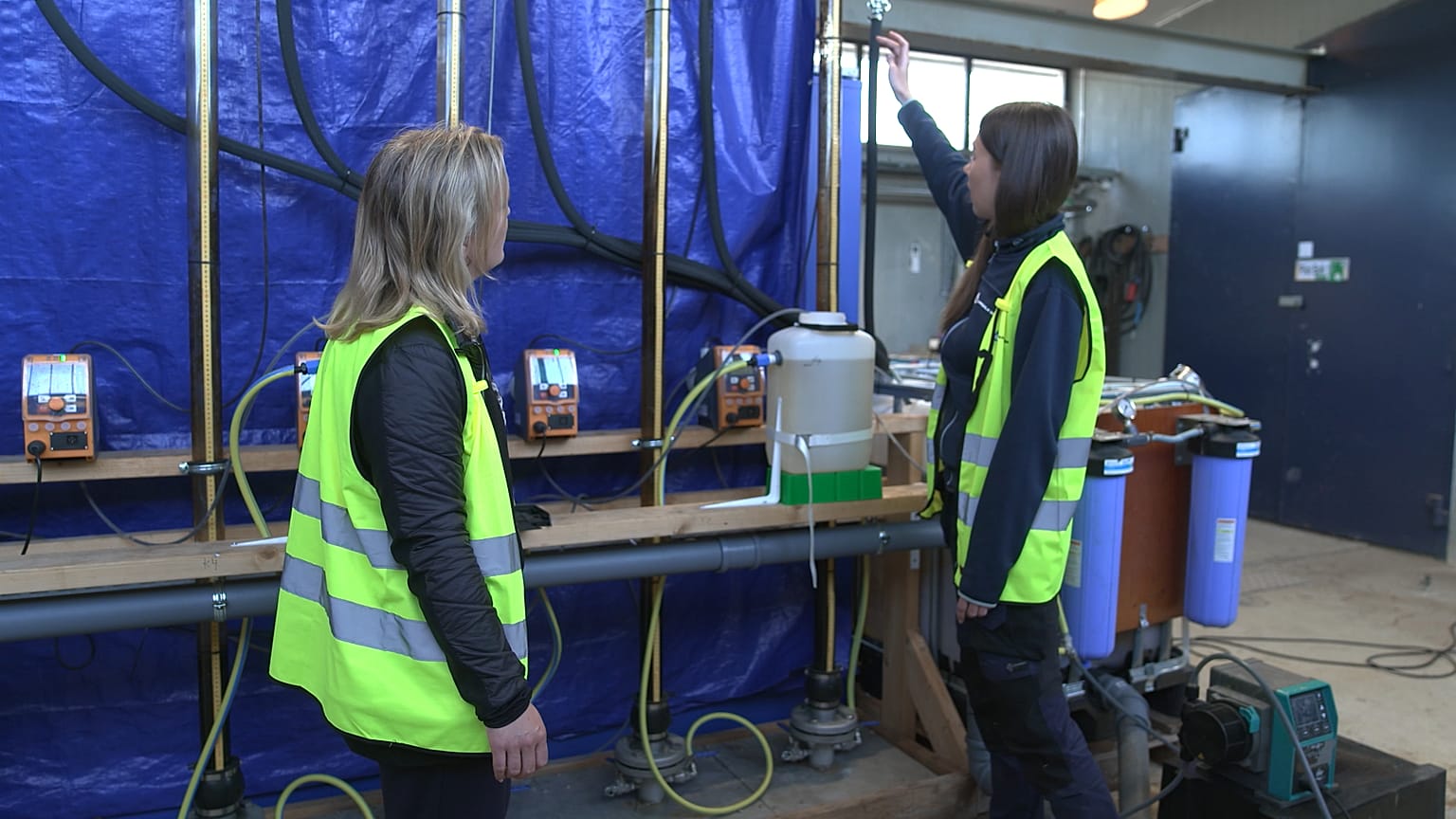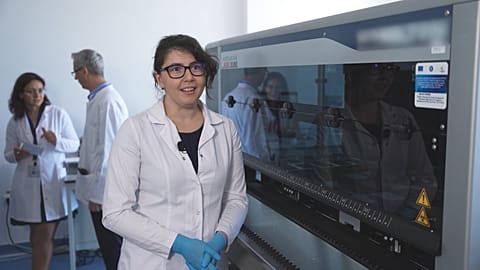Among nutrients, phosphorous, organic material and other micropollutants, the wastewaters in Uppsala, Sweden, contain microscopic but resilient pharmaceutical residues. What are the most cost-effective ways to clean these residues and prevent them from further harming our environment?
An ongoing pilot trial at Uppsala's water treatment plant is assessing the best innovative techniques to remove up to 80% of pharmaceutical residues and micropollutants from wastewater. The engineer coordinating the project, Anna Maria Sundin, shares what they have learned so far.
"We started out with a pre-study, looking at the different technologies to improve the removal of pharmaceuticals and micropollutants from the wastewater. Some of them are removed already today in the treatment plant. But some are more difficult to degrade and are not removed. So we have decided that we want to install a new treatment step."
The technologies evaluated in the pre-study were activated carbon, which is an absorptive technology where the residues are attached to the carbon, and ozonation, a process where you degrade by ozonation. "But since ozonation does not degrade PFOS, a micropollutant, we decided not to continue with ozonation," says Sundin.
However, the team found a new technology not used in the wastewater application, but in the drinking water application; that is the anion exchange. Sundin explains, "That is also an absorptive technology, but that absorbs the negatively charged anions. So now we are looking at the combination of activated carbon and anion exchange."
Through this innovative approach, the team at Uppsala Vatten is paving the way for more effective and cost-efficient ways to protect our environment from the harmful effects of pharmaceutical residues and micropollutants in wastewater.

















